Jobs at sea have always been demanding; and the past several months have revealed new challenges. Seafarers found themselves stranded on vessels for months; others, on the contrary, were unable to join due to the global lockdown. Covid-19 cases were spotted on board all over the world; while only 13 countries have supported the IMO’s initiative to acknowledge seafarers as key workers during the pandemic and work out special protocols for them.
Nevertheless, seafarers have stayed on their vessels ensuring the world doesn’t collapse into a humanitarian crisis in addition to the pandemic and recession. Mariners are the true heroes of the moment, but let’s take a closer look at the seafarer’s profession and evaluate its future prospects.
Jobs at Sea Today
It appears that the ICS (International Chamber of Shipping) statistics we’ve used in our Seafarer’s Salary Research has long become out-dated. Today China has occupied the piedestal of the Top Crew Providing Nations List with 1.58 million of registered seafarers in 2018 (figures by Maritime Affairs Bureau of China).
Incidentally, according to ICS 2015 figures, the total number of seafarers in the world was 1.648 million; so the growth in China was quite dramatic. Another interesting fact about Chinese top position is that 15% (239 000) of captains’ and officers’ licences are held by women making China the unofficial leader of “Empowering women in maritime” movement as well.

So, according to 2018 figures, the up-dated top of crew-providing nations looks as follows:
-
-
- China (1 580 000) ;
- Philippines (460 000);
- India (208 799);
- Russia (approx. 180 000);
- Ukraine (120 000).
-
Therefore, today the total number of seafarers in the world creeps up to 2 500 000 and continues to grow.
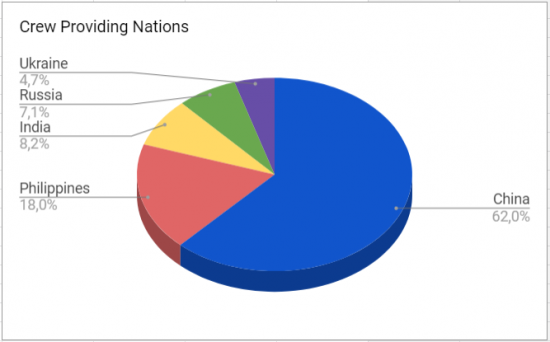
Maritime Industy after Covid-19
Presently, the maritime industry climbs up from a ditch it found itself due to Covid-19 pandemic. Some companies, especially in the oil and gas sector, have filed for bankruptcy (Hornbeck Offshore, Noble Corp., etc.); VLCCs have been used as oil terminas, but the industry recovers as oil prices return to normal gradually.
Dry bulk market has suffered severely as well with so many ports closed and operations suspended at so many lines. Most new-building orders are now either cancelled or postponed at present, but the current operations are restored, so there are plenty of vacancies for seafarers.
Knowing where we are standing at present, let’s consider if our conservative pros and cons still apply.
Seafarers’ Job Advantages
High Wages and Tax Immunity
Good salaries and legal tax avoidance have always been among the strongest incentives to join the maritime industry. Fortunately, the advantage is still here. Almost all maritime countries have developed special tax reliefs for their seafarers:
- China has caught up and announced that the taxable income earned by oceangoing seafarers from 1 January 2019 to 31 December 2023 will be halved. Seafarers have to spend 183 days a year working out of China to qualify for tax exemption.
- Indian mariners can qualify for non-resident Indian (NRI) status and avoid income tax payments in case they spend 182 or 6 months a year abroad.
- Filipino seafarers are totally exempted from income tax in the Philippines under Section 23(C) of the Tax Code as Overseas Contract Workers (OCW).
- Russian Federation provides tax exemption for citizens who spend less than 183 days within 12 months in the country. However, they still have to pay tax from the revenue collected on the territory of the RF.
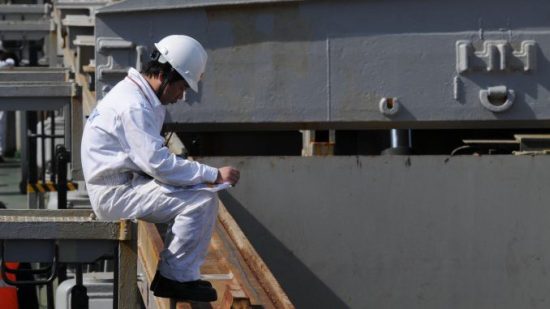
Image Credits to Hazenpusch Dietmar - The 183 days rule still applies in Ukraine either, but they have recently invented a number of Jesuitic ways to claim seafarers as residents and collect income tax. Term “the center of life interests” appears in the Tax Law to ground seafarers as tax residents of Ukraine.
There are countries with tougher income tax policies for seafarers as well:
- UK and European seafarers can only for Seafarers Earnings Deduction which is applicable in the UK and European Economic Area countries (EEA) i.e. Austria, Belgium, Bulgaria, Croatia, Republic of Cyprus, Czech Republic, Denmark, Estonia, Finland, France, Germany, Greece, Hungary, Ireland, Italy, Latvia, Lithuania, Luxembourg, Malta, Netherlands, Poland, Portugal, Romania, Slovakia, Slovenia, Spain, and Sweden. This tax exemption can be obtained in case the seafarer provides a list of records and has got a period of at least 365 days spent mostly out of the UK or EEA countries depending on residentship.
- Norway has even stricter income tax rules for seafarers. There is a Seafarers’ Allowance of 30% of income earned onboard that will be deducted by Tax Administration. The deduction has an upper limit of NOK 80 000 (USD 9 000), though.
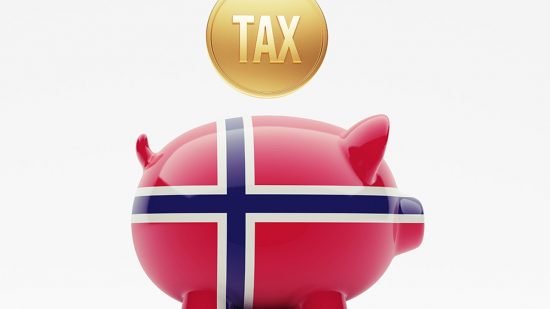
Image Credits to Magnus Legal - US seafarers rely on tax accountants to pay their income tax as the system is rather complicated. There is the Foreign Earned Income Exclusion (FEIE), but it doesn’t apply to seafarers working in the international waters unless they establish a bona fide residency in another country (change their country of residence permanently while remaining a US citizen).
In addition to income tax benefits, jobs at sea are well paid all over the world. There are some curious tendencies, though:
- Onshore professionals in developed countries can earn the same salary or more than seafarers; while in so-called 2nd and 3rd world countries seafarers’ salaries several times exceed average revenue.
- Ratings from the developed countries do not consider their salary to be particularly advantageous since it equals the general salary rates in their countries.
- High inflation rates and unstable economic situation do not allow seafarers to retire early as they used to do a couple of decades ago. Working till 60s is a normal phenomena today.
Continuous Holidays
Another great advantage of a career at sea is an opportunity to recharge properly between voyages. While onshore workers try to cram all work and play into a weekend, seamen have several months to have proper holidays, complete some family affairs if any and enjoy their hobbies.
This advantage has not changed a lot; and although offshore workers tend to have more hectic working schedules (2 weeks on/2 weeks off for instance, they find consolation in short periods at sea and smaller probability to miss some precious moments at home).
Frequent Travellers
Travelling is one more strong lure for a maritime career. Seafarers are paid to travel extensively; it seems they’ve seen the entire world and can provide multicultural counseling. Yet, the advantage is slipping away as many big vessels are loaded/unloaded either at sea or at special terminals facilities far away from cities.
Vessels are designed to allow minimum time at port, so seafarers don’t have much time to explore new destinations, but shore leaves are the moments all seafarers look forward to.
Professional Development
There is a great thing about jobs at sea; maritime professionals have to carry on studying their entire working life. Seafarers have to train in order to acquire promotion, a new certificate or endorsement, to familiarize with some new regulation or improve personal skills. The process might seem never ending and tedious, but it is extremely useful for the professional and personal development.
In addition, seafarers training centers today are the frontiers of modern technology. Augmented reality, VR, gamification are employed to make training experience more profound simultaneously communicating mariners to the new technological era.
Easy Switch to Onshore Job
Maritime professionals are in demand onshore once they’ve seen enough of sea.
- The obvious choices for officers are Marine and Technical Superintendents, DPAs, Senior Crewing Managers, QHSE Directors and a wide range of other white collar jobs.
- Ratings (e.g. Able Seaman, Motorman, usually have additional skills such as Fitter / Welder, mechanic, or Cook, so tend to do well either at sea or at home.
- The same goes for Cruise Ship Positions. This industry employs talented cooks, hotel workers, actors and other personnel who are in demand all over the world. Incidentally, the largest cruise liner in the world Symphony of the Seas hosts 2200 crew.
Seafarer Job Disadvantages
Health and Safety Dangers
The first and obvious drawback of a career at sea is a risk to health and life. Seamen have even been included into ‘Top 3 Most Dangerous Jobs in the U.S.’ in 2019 with a 55.1 fatal injury rate per 100,000 workers. Pirates, unavailability of professional medical help, hazardous working conditions take their toll despite a variety of preventive acts and regulations.
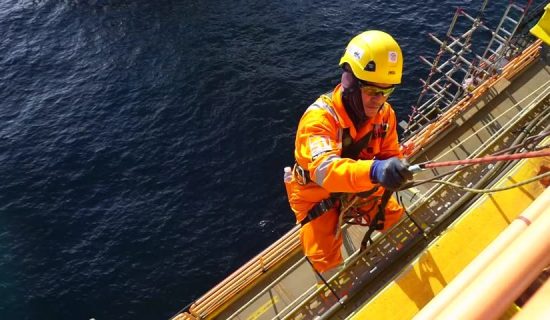
Cardiovascular disease (CVD) is the commonest cause of death at sea among seafarers accordinging to Norwegian Centre for Maritime Medicine and Centre of Maritime Health and Society (Denmark) which have conducted an extensive survey of factors that affect seafarers’ health at sea.
They have divided such factors into 4 categories:
- Risks from Physical Agents such as:
– Vibration (for instance power tools cause hand arm vibration syndrome);
– noise (Engine crew are particularly exposed);
– UV radiation;
– Thermal exposure and
– Non-ionising radiation (NIR) on board.
- Risks from Chemical Exposure which include:
– Oxygen deficiency and carbon dioxide in enclosed spaces;
– Various chemical agents that seafarers might inhale as fumes or encounter in any other forms (marine paints, disinfectants, oil, chemicals in cargo);
– Increased incidence rates of cancer among seafarers due to the exposure to chemical agents. For instance, cases of lung cancer were attributed to the exposure to asbestos, smoking and polycyclic aromatic hydrocarbons (PAH) which are found in heavy fuel oils, used lubricant oils and in the products of combustion. - Biohazards (venomous marine creatures, infectious diseases).|
- Clinical cases (lung, skin, cardiovascular diseases, sea sickness and fatigue).
However, there is a definite improvement in this field. Vessels are better equipped, officers take Medical Care are refresher courses while helicopters can pick the seafarer in medical emergencies up from the vessel.
Insecurity of Jobs at Sea
Many seafarers’ health problems arise from reduced crew on board of modern ships. More duties are performed by each crewmember year by year, so fatigue and stress follow seafarers around the globe.
Moreover, there is a clear trend to the crew reduction in the maritime industry. For instance, Santísima Trinidad, the greatest ship of the Battle of Trafalgar (21 Oct.,1805), was just 201 ft (61 m) long (DWT 1900 tons), but it was operated by the crew of 1200 seamen.
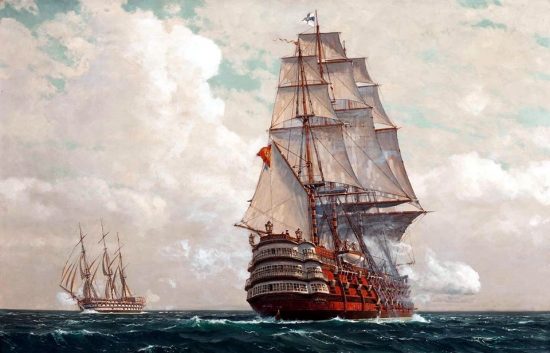
Today, Valemax Bulkers that are among the largest ships in the world 2020 and carry 400 000 tons of iron have a crew of only 29. Robotization is coming to the maritime industry as well; and although construction of unmanned ships such as Kongsberg Yara Binkerland is paused due to Covid-19 pandemic, it seems robotic vessels are an inevitable future of shipping.
https://www.youtube.com/watch?v=l0ksWjIZ47o&t=4s
Separation from Home and Loved Ones
Jobs at sea require mariners to spend more time at sea than they do at home. Therefore, it is difficult to say after a time where your home is. Furthermore, it is impossible to plan all important events for a vacation time.
Births, parents’ jubilees, friend’s weddings and other important events missed, the sense of isolation starts nagging and affects performance. Bad internet connection and inability to talk to family and friends for weeks doesn’t help either.
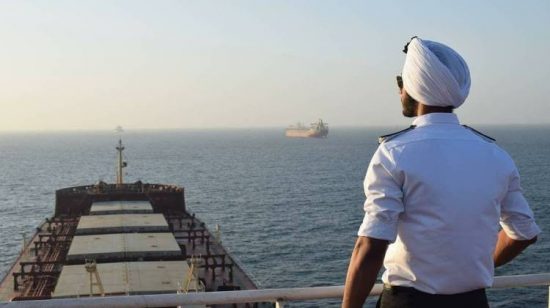
Routine and Boredom
Outsiders might imagine that life at sea is full of exciting adventures, but in fact nowadays mariners live in strict accordance to international and company’s policies and procedures. All tasks are described and shifts defined.
Living in a confined space, working and socializing with the same people and eating rather boring food for months is not everyones cup of tea. However, there is a definite improvement in comparison to the past times.
Nowadays vessels present better accommodation, some facilities for entertainment and exercise; not to mention that food diversity is incomparable to the merchant fleet of the past.
Too Much Bureaucracy on Board
The number of checklists and reports seafarers have to complete pricks on the nerves of all mariners. The worst thing is that the situation is not about to get better. New regulations get adopted almost daily; and seafarers have to keep up, acquire more certificates; and then fill out forms or submit reports.
Jobs at Sea – a Good Career Choice?
Looking up all pros and cons of a career at sea, we can say that it still is a great choice. It remains rewarding and stimulating despite the drawbacks that should be dealt with if you want to be happy at sea:
- Acquire some useful skills to be equally in demand at sea and onshore;
- Ensure you undertake regular medical screening and take the drugs you need with you onboard;
- Turn loneliness into solitude; enjoy the time by yourself by developing new skills or doing favorite hobbies.
- Stay on the brightside and build a successful maritime career.
 Author: Filip Drozda
Author: Filip Drozda
Filip is a maritime professional. He has been working in the shipping industry for 25 years. Mr. Drozda is an expert in crewing for dry cargo and offshore vessels; has a strong technical background, speaks Polish, English and Russian languages.

